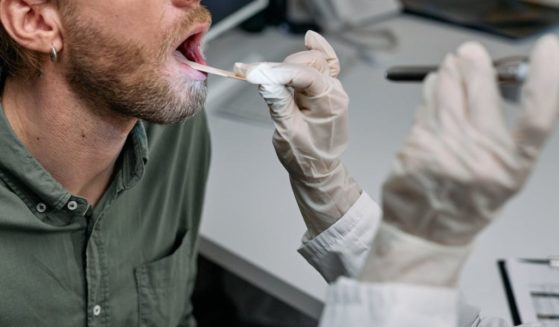Legendary Jazz Patriarch Ellis Marsalis Dies of Coronavirus Complications
Ellis Marsalis Jr., the jazz pianist, teacher and patriarch of a New Orleans musical clan, died late Wednesday after battling pneumonia brought on by the new coronavirus, leaving six sons and a deep legacy. He was 85.
“Pneumonia was the actual thing that caused his demise. But it was pneumonia brought on by COVID-19,” Ellis Marsalis III confirmed in an Associated Press phone interview.
He said he drove Sunday from Baltimore to be with his father, who was hospitalized Saturday in Louisiana, which has been hit hard by the outbreak. Others in the family spent time with him, too.
Four of the jazz patriarch’s six sons are musicians:
• Wynton, a trumpeter, is America’s most prominent jazz spokesman as artistic director of jazz at New York’s Lincoln Center.
• Branford, a saxophonist, led “The Tonight Show” band and toured with Sting.
• Delfeayo, a trombonist, is a prominent recording producer and performer.
• Jason, a percussionist, has made a name for himself with his own band and as an accompanist.
Ellis III, who decided music wasn’t his gig, is a photographer-poet in Baltimore.
“He went out the way he lived: embracing reality,” Wynton tweeted, alongside pictures of his father.
Ellis Marsalis, 1934 – 2020
He went out the way he lived: embracing reality pic.twitter.com/sPyYUuBoIG
— Wynton Marsalis (@wyntonmarsalis) April 2, 2020
“My dad was a giant of a musician and teacher, but an even greater father. He poured everything he had into making us the best of what we could be,” Branford said.
Branford’s statement included a text he said he got from Harvard Law Professor David Wilkins: “We can all marvel at the sheer audacity of a man who believed he could teach his black boys to be excellent in a world that denied that very possibility, and then watch them go on to redefine what excellence means for all time.”
In a statement, Mayor LaToya Cantrell said of the man who continued to perform regularly until December: “Ellis Marsalis was a legend. He was the prototype of what we mean when we talk about New Orleans jazz. He was a teacher, a father, and an icon — and words aren’t sufficient to describe the art, the joy and the wonder he showed the world.”
Because Marsalis opted to stay in New Orleans for most of his career, his reputation was limited until his sons became famous and brought him the spotlight, along with new recording contracts and headliner performances on television and tour.
“He was like the coach of jazz. He put on the sweatshirt, blew the whistle and made these guys work,” said Nick Spitzer, host of public radio’s American Routes and a Tulane University anthropology professor.
The Marsalis “family band” seldom played together when the boys were younger but went on tour in 2003 in a spinoff of a family celebration, which became a PBS special when the elder Marsalis retired from teaching at the University of New Orleans.
Harry Connick Jr., one of his students at the New Orleans Center for the Creative Arts, was a guest. He’s one of many now-famous jazz musicians who passed through Marsalis’ classrooms.
Others include trumpeters Nicholas Payton and Terence Blanchard, saxophonists Donald Harrison and Victor Goines, and bassist Reginald Veal.
Marsalis was born in New Orleans, son of the operator of a hotel where he met touring black musicians who couldn’t stay at the segregated downtown hotels where they performed. He played saxophone in high school; he also played piano by the time he went to Dillard University.
Although New Orleans was steeped in traditional jazz and rock ‘n’ roll was the new sound in the 1950s, Marsalis preferred bebop and modern jazz.
Spitzer described Marsalis as a “modernist in a town of traditionalists.”
“His great love was jazz a la bebop — he was a lover of Thelonious Monk and the idea that bebop was a music of freedom. But when he had to feed his family, he played R&B and soul and rock ‘n’ roll on Bourbon Street,” Spitzer said.
The musician’s college quartet included drummer Ed Blackwell, clarinetist Alvin Batiste and saxophonist Harold Battiste, playing modern.
Ornette Coleman was in town at the time. In 1956, when Coleman headed to California, Marsalis and the others went along, but after a few months Marsalis returned home. He told the New Orleans Times-Picayune years later, when he and Coleman were old men, that he never figured out what a pianist could do behind the free form of Coleman’s jazz.
Back in New Orleans, Marsalis joined the Marine Corps and was assigned to accompany soloists on the service’s weekly TV programs on CBS in New York. There, he said, he learned to handle all kinds of music styles.
Returning home, he worked at the Playboy Club and ventured into running his own club, which went bust. In 1967 trumpeter Al Hirt hired him. When not on Bourbon Street, Hirt’s band appeared on national TV — “The Tonight Show” and “The Ed Sullivan Show,” among others.
Marsalis got into education about the same time, teaching improvisation at Xavier University in New Orleans. In the mid-1970s, he joined the faculty at the New Orleans magnet high school and influenced a new generation of jazz musicians.
When asked how he could teach something as free-wheeling as jazz improvisation, Marsalis once said, “We don’t teach jazz, we teach students.”
In 1986, he moved to Virginia Commonwealth University in Richmond. In 1989, the University of New Orleans lured him back to set up a jazz studies program.
Marsalis retired from UNO in 2001 but continued performing, particularly at Snug Harbor, a small club that anchored the city’s contemporary jazz scene — frequently backing young promising musicians.
His melodic style, with running improvisations in the right hand, has been described variously as romantic, contemporary, or simply “Louisiana jazz.” He was always on acoustic piano, never electric, and even in interpreting old standards, there’s a clear link to the driving bebop chords and rhythms of his early years.
He founded a record company, ELM, but his recording was limited until his sons became famous. After that, he joined them and others on mainstream labels and headlined his own releases, many full of his own compositions.
He often played at the New Orleans Jazz and Heritage Festival, and for more than three decades he played two 75-minute sets every Friday night at Snug Harbor until he decided it was exhausting. Even then, he still performed on occasion as a special guest.
On Wednesday night, Ellis III recalled how his father taught him the meaning of integrity before he even knew the word.
He and Delfeayo, neither of them yet 10, had gone to hear their father play at a club. Only one man — sleeping and drunk — was in the audience for the second set. The boys asked why they couldn’t leave.
“He looked at us and said, ‘I can’t leave. I have a gig.’ While he’s playing, he said, ‘A gig is a deal. I’m paid to play this set. I’m going to play this set. It doesn’t matter that nobody’s here.'”
Marsalis’ wife, Dolores, died in 2017.
He is survived by his sons Branford, Wynton, Ellis III, Delfeayo, Mboya and Jason.
The Western Journal has reviewed this Associated Press story and may have altered it prior to publication to ensure that it meets our editorial standards.
Truth and Accuracy
We are committed to truth and accuracy in all of our journalism. Read our editorial standards.











